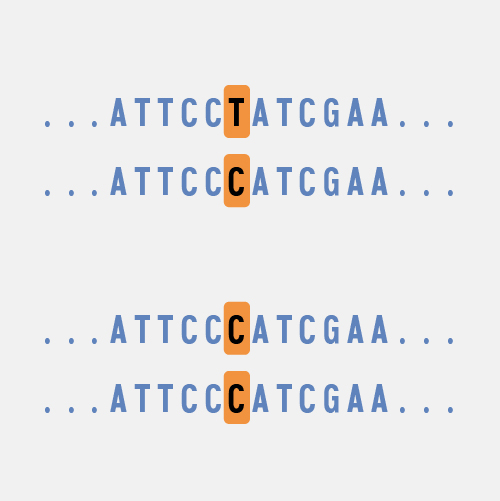
Restriction Fragment Length Polymorphism (RFLP)
Definition
Restriction fragment length polymorphism (abbreviated RFLP) refers to differences (or variations) among people in their DNA sequences at sites recognized by restriction enzymes. Such variation results in different sized (or length) DNA fragments produced by digesting the DNA with a restriction enzyme. RFLPs can be used as genetic markers, which are often used to follow the inheritance of DNA through families.
Narration
RFLPs have been very useful to use as markers for following a genomic DNA, either from human or other animals. What is it, though? So basically, if you follow the sequence of DNA, particular sites, a series of four to eight nucleic acids, results in a restriction site where an enzyme from bacteria can actually bind and cleave that DNA. So why is that useful? Well, we can take advantage of this fact to actually look for differences between people if they have that restriction enzyme site or not. So a single base difference between two people could result in either the presence or absence of that restriction site. So then, if you isolate that piece of DNA surrounding that site from two people, from one of them it will be cut by the enzyme and the other one it won't. And that results in a polymorphism, or difference between those two people. We typically see these, or we monitor these, by isolating the DNA, cutting it with that bacterial restriction enzyme, and running it on a gel using electrophoresis. In one person, without the enzyme site you'll see one band, and the person that has the enzyme site, you'll see two bands, representing the two cleaved products. So these differences in nucleic acid sequences and restriction enzyme binding sites just mean that there's a difference in the sequence between those two people. That sequence difference doesn't necessarily mean that there's a disease associated with it. It's a polymorphism that we could use to follow the inheritance of DNA.





